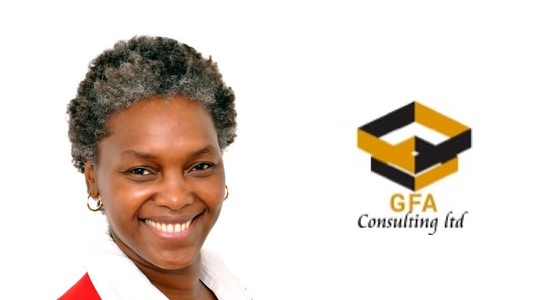Several reasons explain why SMEs in Ghana and West Africa struggle to raise funding to finance their growth: many entrepreneurs have limited knowledge of fundraising options available to them and don’t know how to “sell” their investment opportunity to potential investors. Also, they are perceived as riskier than larger companies and have limited access to collateral, which makes it difficult to access loans from banks. However, while SMEs seem disadvantaged when raising funding, the following tips should increase your probability of accessing financial resources for your business.
Understanding how financiers think
The first thing to understand when raising funding is that no debt or equity provider will fund a project or company for which expected returns are not higher than perceived risk. That’s the reason why it is so difficult for non-technology African startups to attract funding. Risk and return are the two underlining factors financiers consider when deciding to invest in a business, and African businesses are no exception.
Risks can have several sources for any given business, from political risk to market risk, currency risk, project risk or regulatory risk. Financiers will systematically analyze all the major risks a business is exposed to and will look at ways to manage their potential impact on the business. For instance, the persistent depreciation of the cedi has certainly been a challenge for some investors when considering funding Ghanaian businesses. Financiers will rule out investment opportunities if significant risks are not either mitigated or compensated with even more significant returns. Returns are generally earned in the form of interests (in the case of loans) and in the form of dividends and capital gains on the sale of shares (in the case of equity investments).
How will lenders and investors determine that an investment is worth pursuing? By relying on their own country and sectoral experience to properly identify risks, evaluate mitigation measures and assess expected returns. Consequently, projects that are too innovative with limited number of comparable transactions will struggle more to attract funding.
Fundraising takes time
You need to dedicate time to develop a credible documentation that outlines the strengths and weaknesses of the business given the environment in which it operates. Internal elements relate to the way the entrepreneur manages its operations, from cash management to risk management processes to the way financial information is generated. The quality of management teams needs to be assessed, along with the level of governance. Financial projections must be consistent with what the company has achieved so far, and with the external conditions prevailing or expecting to prevail for the business. Such conditions include client segmentation, client drivers, regulation, competition, etc. It takes between one and two months for experienced fundraising advisors to develop a complete documentation comprised of a full investment proposal and a complete financial model (including valuation works if the business is looking to raise equity). Once documentation is complete, interested investors will take three to six months to analyze the opportunity, organize several meetings with the business and its stakeholders to get additional information, and complete a full audit of the business, its management, its operations and its financial performance (this is also called the due diligence process). With the drafting of all legal documentation, the whole process can therefore take minimum six to nine months until the effective cash disbursement. The bottom line is that time should not be your enemy, thus the fundraising process must be planned!
Seven common traps businesses fall into when fundraising
Many entrepreneurs don’t approach the fundraising process in the most effective way; here are seven mistakes that entrepreneurs commonly make when engaging into a fundraising process:
• Raise money because you desperately need cash – Given the time it takes, the fundraising process must be carefully planned and anticipated. Investors will not change the way they assess an investment opportunity because you are in a hurry. Also, investors may be reluctant (in some cases) to invest in a struggling business and may question the capabilities of the management team.
• Leave the development of the full documentation to consultants without being involved – Investors don’t invest in a business plan document, but in a management team. When investors realize you don’t fully own your strategic and business plan assumptions, chances are that no deal will be concluded.
• Raise money for new ventures – Investors are attracted to growth stories and expansion plans for existing activities. There are limited funding options for startups, therefore the existence of a credible track record will greatly increase your chances of raising funds.
• Believe that you can develop quality documentation yourself or at a cheap price – Developing fundraising documentation takes a lot of time and requires deep knowledge of what lenders and investors expect and of ways to develop credible financial assumptions. Therefore, it is important to work with specialized advisors with a proven track record and a strong network of local and international investors, and this requires an investment from you.
• Underestimate the magnitude of the competition for money – A lot of money is available to fund projects in Ghana and Africa, but investors are extremely selective and always make choices at a minimum between several businesses in a country or between businesses of the same sector across different countries. Since investors usually invest in a maximum of three businesses a year, you need to be clear on the reasons why your project should be selected.
• Believe that investors will give you money because of a beautiful investment proposal – Never forget that the quality of your teams, systems and processes, along with your level of governance, are as important to investors as the credibility of the project for which you’re looking to raise funding.
• Try to outsmart investors during the negotiation process and focus on money alone – Instead of having such a short-term view, you must focus on building a trusted relationship with investors for the successful execution of the business plan. Discussions should therefore evolve around how potential investors can help you achieve your strategic and operational objectives.
In conclusion, entrepreneurs must “own” the fundraising process and decisively change the way they operate their business towards more skilful teams, more robust processes and better governance. This is a sure way of increasing your chances of attracting funding and getting the financial resources that will change local businesses into regional champions that will transform Africa.

Carole Ramella is Founder and Managing Director of GFA Consulting Ltd, an independent corporate finance, business support, tax and legal services company based in Accra, Ghana.
After experience with Paribas and Arthur Andersen in France and Italy, Carole joined Gras Savoye, an insurance brokerage company, to develop the M&A practice for private equity and industrial investors. She then joined Duff & Phelps before moving to Ghana in early 2011 and founding GFA Consulting.
Carole is a graduate of NEOMA Business School (ex-Reims Management School) and holds an MBA from INSEAD. She is a member of the Investment Committee of I&P, a French private equity firm, and is a Foreign Trade Advisor for the French Government.


